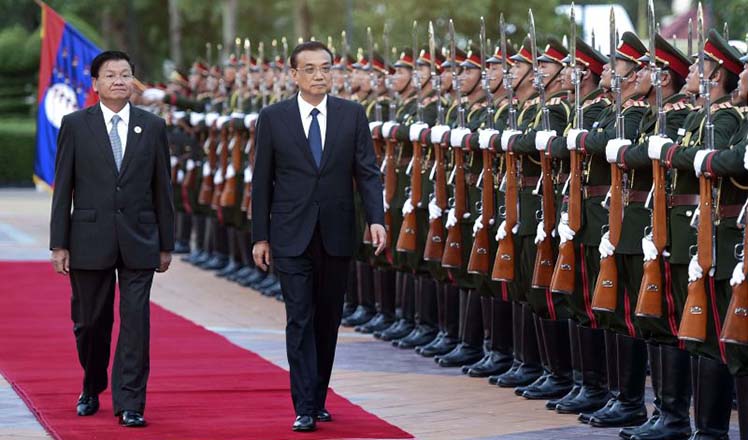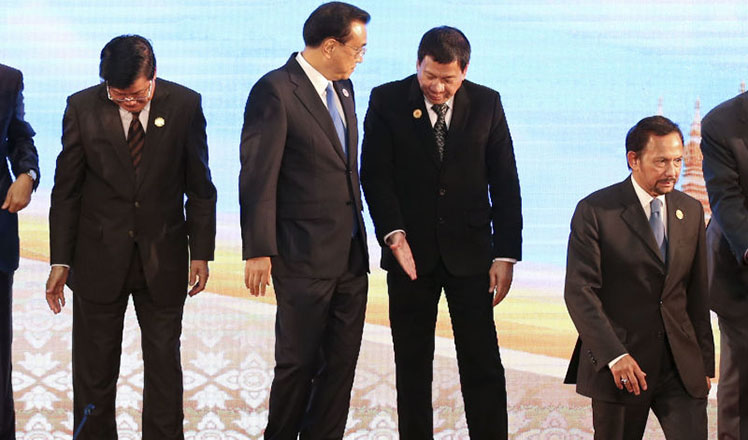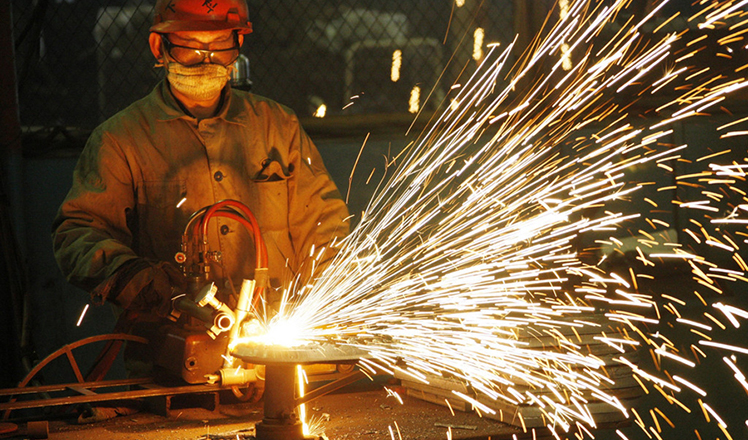Sufficient reasons for nation to build a supercollider
Updated: 2016-09-10 07:10
(China Daily)
|
||||||||
Editor's Note: Chen-Ning Yang, a Chinese-American Nobel Prize-winning physicist, recently advised China publically not to proceed to build a super collider. One major argument is that the project involves huge investment, which can be used for social programs and other research projects. Responding to this, two physicists expressed their views:
Progress will be worth the investment
Professor Yang's first argument in opposing the supercollider is the high cost. Citing the United States' Superconducting Super Collider, which had initially been budgeted at $3 billion in 1989, but was abandoned three years later because of rapidly rising cost. Yang said China should not repeat the mistake made by the US.
But the SSC failed because of multiple reasons, among them are US federal government budget deficit, political struggles between the Democratic and Republican parties, as well as regional competition between Texas and other states.
It would not be the case in China. The Institute of High Energy Physics of the Chinese Academy of Sciences has built a number of large scale scientific facilities, such as the Beijing Electron-Positron Colliders (BEPC, BEPCII) and the ADS injector. All the costs have been well controlled within budget range. There is no reason to expect China's supercollider program will exceed the budget as the case of SSC.
Yang also said that the investment in such a huge project would mean less funding for programs to improve people's livelihoods and social welfare. Of course China needs to fund programs to improve social welfare, but it also has to spend on scientific research to facilitate technological breakthroughs.
Furthermore, progresses made in high energy physics help improve people's livelihoods, too. Today we have Magnetic Resonance Imaging devices to diagnose diseases in hospitals, we have touch screens that allow us to conveniently use our smartphones, and we have the World Wide Web to share information. Without pursuing research in high energy physics for the past 70 years and the technology innovations associated with the research, all these would have been impossible, or significantly delayed in time.
For China, a supercollider will allow its scientists to keep abreast of the latest developments in physics, even enabling the country to become a global research center. That's irreplaceable to its development in the long run.
The budget for building a supercollider will not dry up funds for other research programs, either. Basic research accounts for only 5 percent of R&D funding in China, which only represents one third of developed countries.
As the top Chinese leadership vows to increase investment in basic research, the fund for basic research is expected to increase by 100 billion yuan ($15 billion) annually; as a comparison, the planned supercollider would require 3 billion yuan a year from 2022 to 2032 in its first stage. Therefore, the supercollider will not squeeze the funds for basic research programs.
Yang was also pessimistic about building Chinese particle accelerators in the 1970s, yet the returns from the program were well worth the investment: the science came out of the BEPC, BEPCII colliders, the expertise acquired through the associated experimental programs was vital in building the successful Daya Bay experiment, and the synchrotron radiation facilities and the neutron spallation sources constructed and operated to serve the broad scientific community are all examples of good investment returns.
For the future we should listen more to the young scientists at the front line of research, who will carry China's science programs to the next level. We believe a supercollider in China will help in a big way.
Wang Yifang, director of the Institute of High Energy Physics, Chinese Academy of Sciences
- Three women planning 'imminent' attacks arrested in France: minister
- China, Britain vow to deepen military exchanges, mutual trust
- British parliament to debate second Brexit referendum petition
- Chinese women find their way through the glass ceiling
- Rousseff leaves presidential residence in salutation
- Thousands of Chinese rally in Paris to call for 'security for all'

 Sights and sounds of Premier Li's visit to Laos
Sights and sounds of Premier Li's visit to Laos
 Yao Ming and Class of 2016 receive Hall of Fame jackets
Yao Ming and Class of 2016 receive Hall of Fame jackets
 Bullet train attendants strut new look in Xi'an
Bullet train attendants strut new look in Xi'an
 Ten photos from around China: Sept 2 - 8
Ten photos from around China: Sept 2 - 8
 Turning mud into work of art
Turning mud into work of art
 Unforgettable moments of Premier Li at ASEAN meeting
Unforgettable moments of Premier Li at ASEAN meeting
 Six policy signals China sent at G20 Summit
Six policy signals China sent at G20 Summit
 'First Lady table ware' a hit in Hangzhou
'First Lady table ware' a hit in Hangzhou
Most Viewed
Editor's Picks

|

|

|

|

|

|
Today's Top News
Trump outlines anti-terror plan, proposing extreme vetting for immigrants
Phelps puts spotlight on cupping
US launches airstrikes against IS targets in Libya's Sirte
Ministry slams US-Korean THAAD deployment
Two police officers shot at protest in Dallas
Abe's blame game reveals his policies failing to get results
Ending wildlife trafficking must be policy priority in Asia
Effects of supply-side reform take time to be seen
US Weekly

|

|








